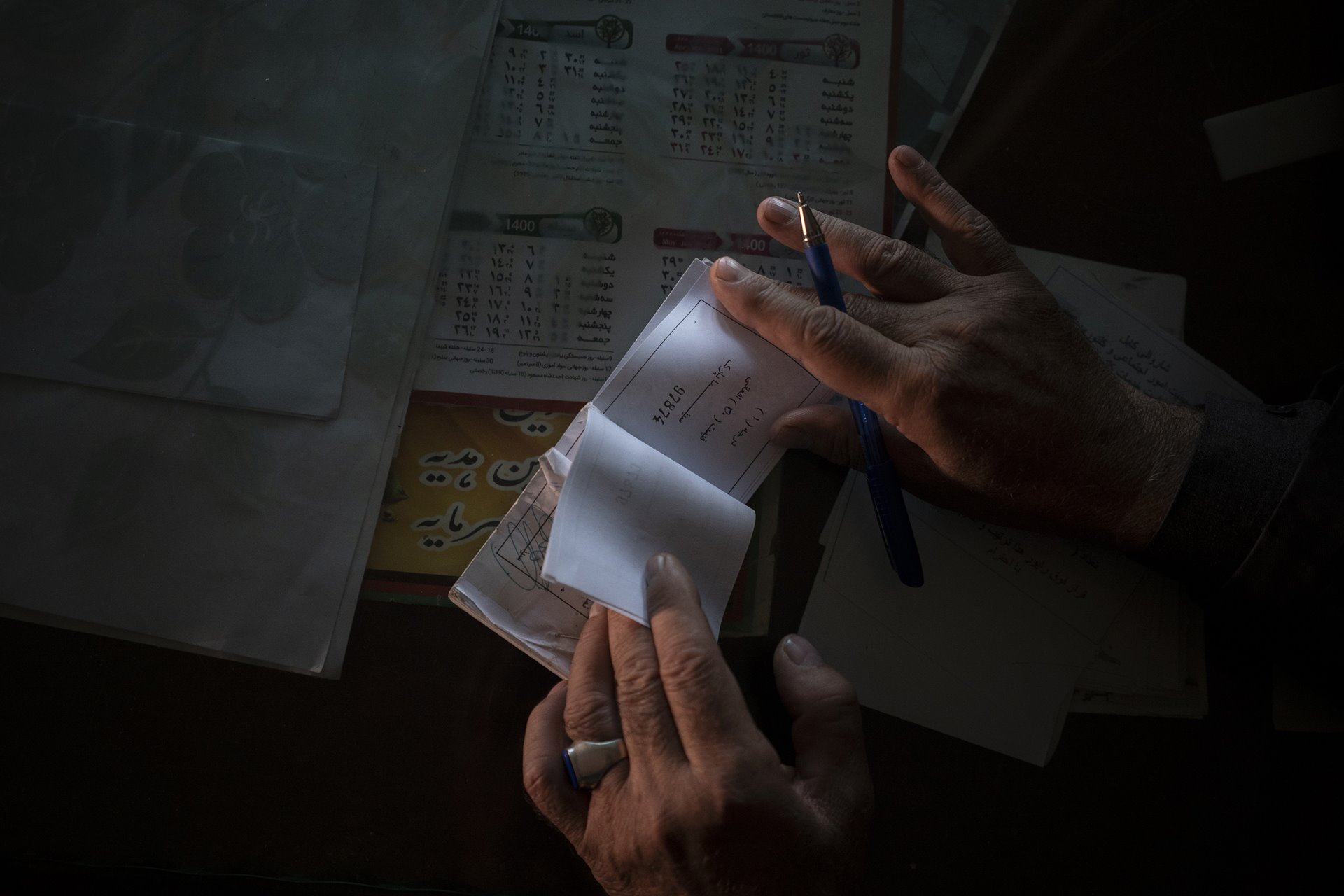Abdul Malik Wahidi, who sells tickets at Ariana Cinema, in Kabul, Afghanistan, shows unsold tickets while browsing through them. The Taliban had ordered cinemas to stop operating nearly three months earlier.
Culture can also be a casualty of war. Following the Taliban takeover of Afghanistan in August 2021, the Ariana Cinema in Kabul remained closed, its staff in limbo, waiting to hear whether the Islamist fundamentalist Taliban would allow films to be screened. The cinema, which had operated since the 1960s, was one of around half a dozen in the Afghan capital and was restored in 2004, after the previous Taliban government was overthrown. The Ariana is government-owned, and the Taliban allowed male employees to come in for work, but Asita Ferdous – the cinema’s first female director – was not allowed to enter the building. She has since moved to Pakistan, and is seeking asylum elsewhere. In early 2022, the cinema remained closed, and women were no longer allowed to be employed there.
The Taliban took control of Afghanistan in mid-August 2021, just weeks after the majority of US and NATO troops had withdrawn from their bases. During their first period in power, from 1996–2001, the Taliban had imposed a strict interpretation of Islamic law, including compulsory attendance at mosques, a ban on women from working or going to school, and forbidding music and cinema. Immediately after the 2021 takeover, secondary schools for girls were closed, many women were instructed not to return to their jobs, and in some places Taliban fighters stopped live music performances and prohibited people from watching television.
The photographer went to Afghanistan on assignment, and has a personal passion for cinema. He found this situation to be symbolic of the standstill the nation finds itself in since the Taliban occupation.

